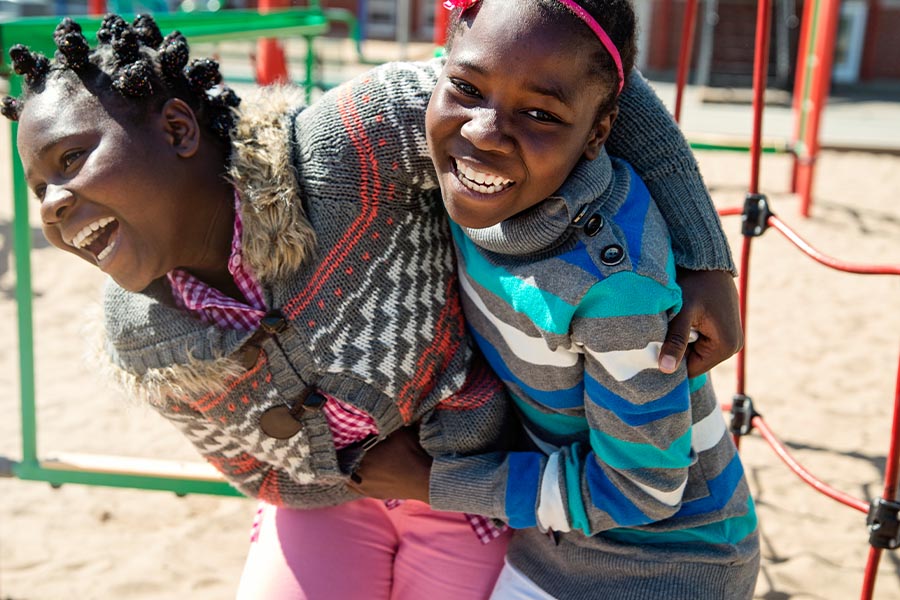Our Successes

Building stronger, healthier, and more resilient communities through technology innovation and local partnerships.
King County, Washington
- Challenge: Increasing the vaccination rate in Latino communities by helping them overcome access and hesitancy issues.
- Partners: Evergreen Health, Overlake Medical Center & Clinics, Seattle/King County Public Health Department, Microsoft, Centro Cultural Mexicano
- Lessons Learned: Culturally appropriate events can build engagement. Conducting a pop-up event designed to meet the cultural needs of the Latinx community, such as having native speakers, music, and cultural works on display, enabled community members to find the access and encouragement they needed to take the first step in the vaccination process.
- Success Metrics: Several hundred individuals vaccinated at the event; 98 percent Latino, from 68 zip codes, and 30 cities.
Northern California
- Challenge: Increasing overall vaccination rates and the percentage of individuals returning for a second visit in the migrant farm worker community.
Partners: Solano County Department of Public Health, Community Health Medical Reserve Corps, Microsoft, Martinez Ranches, Dixon Migrant Center, Robben Ranch, and Everde Growers.
- Lessons Learned: Peers and family members can be powerful advocates in helping to overcome hesitancy. Many of the first-shot recipients brought their entire families, friends, and neighbors to participate in the second event.
- Success Metrics: Over 90% return rate for a second shots; significant increase in the number of people attending the second event versus the first event.
Clarkston, Georgia
- Challenge: Increasing vaccination rates in refugee communities with high hesitancy rates, and inconsistent access to healthcare overall.
- Partners: Easterseals, American Heart Association, Emory Health, Microsoft, Accenture, Department of Health, Clarkston COVID Coalition (a collaborative group of local community-based organizations, free clinics, and federally qualified health centers).
- Lessons Learned: Combining general health fair services (preventive health screenings, childhood immunizations) with “Return to School” and “Literacy” community events can help drive attendance and provide the opportunity to reach individuals who may be hesitant or reluctant to attend a COVID-only event. Partnering with refugee CBOs, that can provide translation services assists in health education and communication efforts. Finally, each event had fun activities and giveaways for children that engaged families.
- Success Metrics: Approximately 400 people attended the first event with a third of them receiving the COVID-19 vaccine. The second event saw lower attendance due to the rapid rise of the Delta variant and the fear of bringing children to a group event. One hundred and fifty families did attend this annual literacy event with the unexpected benefit that the nice weather allowed the children to interact and play with each other — a positive mental health opportunity for children who have been predominantly isolated since the beginning of the pandemic.
Mississippi (Forrest County and Surrounding Areas)
- Challenge: To address the low COVID vaccination rates in Mississippi where there was significant hesitancy and aversion due to historical, social media, personal beliefs and other misinformation campaigns. Addressing these concerns required providing accurate information presented by credible Healthcare providers, community leaders and local faces trusted by the local communities, particularly in populations of color.
Partners: Many local organizations came together to address the challenge including: Forrest County Board of Supervisors; Lamar County Board of Supervisors; National Association for the Advancement of Colored People (NAACP) State Conference; ConXCare Telehealth; NAACP Forrest County Branch; Institute for the Advancement of Minority Health; Mississippi State Department of Health; The First Bank; Pine Belt Foundation; Hattiesburg High School Health Occupations Students of America (HOSA); WORV/WJMG/WQID Radio Station; Area Churches and ministries; Antioch Missionary Baptist Church; Hattiesburg Crusade for Christ Deliverance Church; St. James C.M.E. Church; Belt Temple Church of God in Christ; St. Paul United Methodist Church; Anointed Word Church Dance Ministry; Shady Grove Missionary Baptist Church; Wayside Holy Temple Church; House of Blessing Church; Sanctuary of Praise and ReBirth Ministries; Moss Point Visionary Circle; League of Women Voters, Pine Belt; Main Street Book Store; Coca-Cola Bottling Company UNITED; Microsoft; Petal Chamber of Commerce; Marco Jumpers; Hattiesburg Downtown Association; Howlett Insurance Agency; Mississippi Security LLC; Southeast Mississippi Rural Health Initiative, Inc.; Retired Education Personnel of Mississippi Pine Belt; Corner Market Grocery Store; YMCA; Team of College Student/Graduate Greek Sororities and Fraternities; Local Television stations and Print Media. Microsoft supported by sharing successful strategies from other regions to accelerate program rollouts.
Lessons Learned: Critical to engage and encourage trusted community-based organizations and churches to better facilitate community interest and enhance participation in events. Also how best to connect with specific audiences, such as communicating with Hispanic communities through Spanish language information flyers and postings in businesses frequently visited by Hispanic residents. Also how creating fun activities (which seemed a conflict with the seriousness of the endeavor) helped engage people to attend with local dance teams, providing food giveaways, gift cards, face painting, fun jumps and playgrounds for children as well as other health activities (“de-COVID” the events), including Influenza vaccine, blood pressure check, blood glucose checks, and medical consultations. Particularly effective were the PSAs frequently aired on the WORV/WJMG/WQID Radio Station, a leader in communications for communities of color in the area, to tell their very personal and moving stories about how COVID had impacted them and their families personally – often in sad ways with loss of key family members. Steering Committee members observed that one-on-one conversations often resulted in attendees returning with family members to receive COVID vaccinations and boosters.
- Success Metrics: Some great programs were put in place that will continue beyond COVID including “Pastors in the Park” and the “This is Our Shot” campaign. These and associated activities saw a significant increase in COVID vaccination numbers and ability to move on to address other health challenges in these communities.
